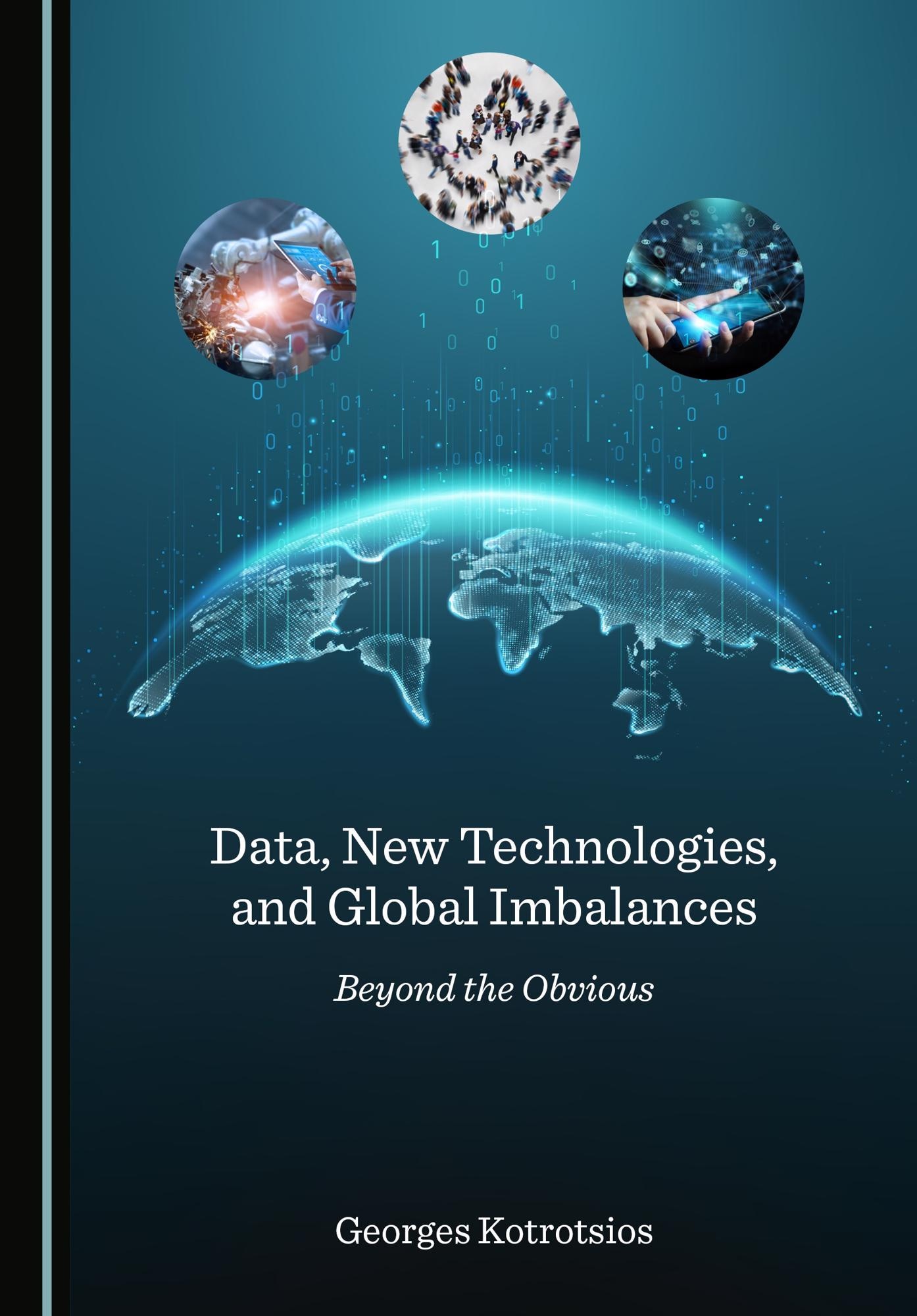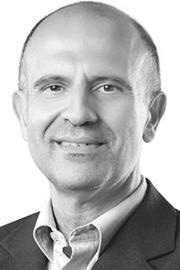In this interview, Georges Kotrosios talks to AZoM about preventing global imbalances with data and technology.
How has the relationship between technology, industry and the economy changed over recent years?
Data has played the role of an accelerator between technology, industry and the economy: data accelerates the interaction between these three aspects of our life. In doing so, science technology has become an increasingly important factor in economic and political life.
The increasingly important role of science can be seen in the recent pandemic. The role of social media can be seen in recent events (eg. Brexit) and the role of electronics can be seen in modern cars, smartphones or watches.
Technology has never played such a central role in society before. The exchanges between these three aspects - technology, industry and the economy - have become increasingly faster as data increasingly overlaps. New technology is the main reason for this.
What has driven this change?
This is the nature of data. Data allows more quantitative and in-depth analysis of every aspect of business or societal interaction. This allows us to better understand processes that previously were only quantitatively estimated. Being analytical and precise is more efficient for the economy.
If entrepreneurs understand the need for more tools that provide data from the industry, then the industry turns to technology and asks for new developments. On the other hand, engineers and scientists understand the increasing potential of their knowledge, unleash their creativity and imagine new applications that need to become a reality.
Data is not living alone. It needs several technologies: new manufacturing technologies to make them (i.e., increasingly smaller feature microelectronics for processing and communications, heterogeneous technologies to integrate sensors, actuators and smart systems), and technologies that manage resources (e.g. energy generation through energy scavengers).
Digital technologies, new manufacturing technologies, and resource management technologies are big technology trends that allow the generation of data. As a result, these technology trends are growing and increasingly demanding requirements for data generation, transmission, processing and storage.
These technology trends generate industrial trends. Among them, is the complexification of products, processes and value chains. An example is the transition of a normal telephone to a smart one. Complexification establishes new ways to creatr value. Beyond the well-known example of social media platforms, the usage of data in health, energy, agriculture and many more applications transforms the way that business and society work.

How does data as an asset differ from other more traditional assets like property or gold?
Data is ultramobile. Data can belong to different persons or organizations. Information contained in a data file copied to two persons or organizations can belong to both of them. If these persons are in competition, the economic value of the data file decreases if a copy is created.
A company that knows that I like red cars, and has the information, can target me with an ad-hoc advertisement. That company then has the ability to sell a red car to me. If this information is copied to a second company that sells red cars, then the value of the information for both of these companies decreases.
Now, if the data file copied concerns my health and is shared between two medical doctors who wish to save my life, then the value of this set of data increases.
Data also plays a very important role as it is a lever to traditional capital: the success of data-based companies is decent proof.
What are the benefits of increased dependence on data and technology?
Big benefits include the possibility of creating value all over the world: one can transmit and process data from Alaska to Antarctica, from Siberia to Tiera del Fuego.
We observe, however, that in spite of this possibility, people that create economic value out of data are located around specific geographical areas and create valuable ecosystems (e.g. the Bay area or the Shenzen area). The proximity of complementary human skills and capital seems key.
Among the benefits, one can find increasingly quantitative knowledge of the world, that allows humans, to better control our destiny and to predict or mitigate catastrophes.
Data and technology, by creating more complex value chains, increase the diversity of value creation mechanisms. New business models and new types of products are born. More opportunities to create value, and, therefore, high added value jobs, pop up everywhere.

Image Credit:Shutterstock/greenbutterfly
What are the imbalances that increased reliance on data is creating?
We have two types of imbalances. Between geographical areas and within the same areas. In the first category, wealth increases exponentially day by day, exploiting the potential of data platforms. We have also areas that are traditional industrial ecosystems, as the Pharma (Boston and Basel). There is also competition between these two types of ecosystems, noting, however, that both are on the wealthy side.
On the other side, we have a large part of the population, in remote places of the globe which does not has the opportunity (or at least they have much less of an opportunity) to participate in the ecosystems, for instance, simply because they are born in a place far away from the ecosystems.
Now even within the ecosystems, the winners are the ones that get the adequate opportunities that could be based on knowledge or capital or both. Those building on their wealth on data grow their fortunes and wages much faster. The cost of the infrastructure surrounding them becomes prohibitively expensive to these (eg. blue collars, cleaning and catering personnel) who cannot access this wealth.
How could these problems be addressed?
First, the problem needs to be understood and discussed widely. There is a large spectrum of potential solutions, and I cannot claim here, not even in my book, to give solutions. Instead, I offer some ideas to think about, debate, modify and build upon.
Trying to allocate monetary value to data is one approach to be debated, for instance, syndicating users and allowing them to exchange data. GDPR is another approach example; the recent proposal of G7, adopted by OCDE on uniform minimal company taxation, branded as “tech tax deal” by the BBC (which precisely targets companies exploiting the extreme mobility of data) are ripples towards global regulation.
Today, data taxation is difficult due to the lack of valuation modes that can be part of the future toolboxes to faces inequalities.

Image4 Credit:Shutterstock/AneesAlangadan
Can you explain how the CSEM is positioning itself in the face of a changing world?
CSEM is a research technology organization. Our mission is to develop cutting-edge technology and bring it to the industry to increase its competitiveness. CSEM is at the front end of technological changes. Several revolutions came out of our technological developments in the past. In the realm of integration into society, we also aim to use our understandings to inform society and the economy: this is what we are doing here, this is what I tried to do with my book.
Have world governments and policymakers moved along with these changes, or have they been too rapid?
Legislation and regulation, advanced information to the citizens on the potential and the risks of technologies, education of the younger generations, use of AI tools for scenario building and platforms for open data exchange are among the ideas to be debated.
Have private companies handled the increased influence of data and technology better than governments?
Yes, because they had the data, that means that they had the power.
Could you explain how data affects the lives of members of the public in seemingly unrelated industries like farming without them even knowing about its influence?
Let’s take a farmer in an isolated place as an example. He continues growing her or his crops, as he/she did in the last century, and brings it to the market as she or he always did. His neighbor uses watering and pesticide optimization monitoring techniques with wireless connectivity. In doing so, she is connected to the logistic system of the large supermarket chain.
The neighbor, a second lady, not only produces cheaper and better quality produce but, by properly managing water, she can also manage that crop to maturation at the right moment when supermarkets need it, ascertaining that the harvest will be sold. She will be kept in the market, with less risk and will perhaps overtake the business of other people who decided not to adopt advanced technology.
Now, let’s look at it from an international perspective. Consider farmers in a western country, say the US, and a less wealthy country, which does not have the tools to optimize crops. In the latter case, and despite lower wages, decreased mechanization and decreased monitoring shall result in a more expensive harvest. This increases inequalities for the benefit of the more technologically advanced country.
Do you predict a change in how data is handled, and how will the CSEM play a role in this change?
By doing our best to provide technologies that not only improve economic competitiveness but also consciously focus on technologies that impact humans, the environment and science, CSEM will play a big role in the change of data handling.
About Georges Kotrotsios
Georges Kotrotsios has a background in optical fiber sensors, technology and lasers. He holds a Ph.D. Degree in Optoelectronics, Institut National Polytechnique de Grenoble (FR), an Executive MBA in Management of Technology, Université de Lausanne/EPFL (CH) and an Electrical Engineering Degree from the Aristotle University of Thessaloniki (GR). He is in charge of the Marketing and Business Development of CSEM since April 2005 and member of the Executive Board of CSEM.
In 2015 he has been elected individual member of the Swiss Academy of Engineering Sciences.
He sits in the Executive Board EARTO (European Association of Research and Technology Organisation) as well as in the Executive Board of EREA (the European Association of Aeronautics Research Centers). He is also member of the Board of Directors of CSEM do Brazil. For 2016 and 2012 he chaired the Alliance of Fraunhofer-Microelectronics, CEA-LETI, VTT and CSEM on Smart Systems (HTA).
He is acting as a reviewer in major scientific Journals (Optics Letters, Applied Optics) as well as expert for national and international R&D projects.


This information has been sourced, reviewed and adapted from materials provided by CSEM.
For more information on this source, please visit CSEM.
Disclaimer: The views expressed here are those of the interviewee and do not necessarily represent the views of AZoM.com Limited (T/A) AZoNetwork, the owner and operator of this website. This disclaimer forms part of the Terms and Conditions of use of this website.